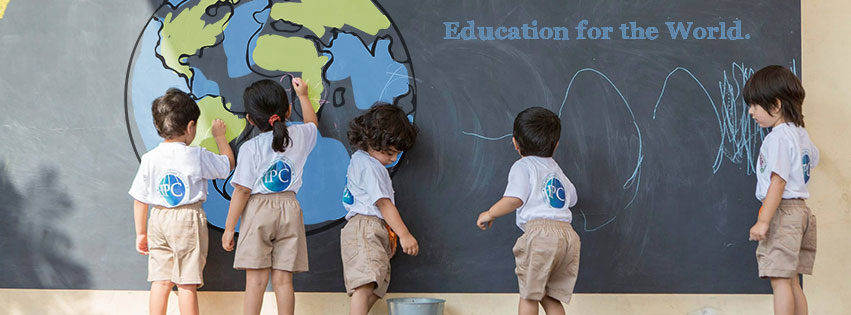The International Preschool Curriculum (IPC) was founded to strengthen and harmonize early childhood education standards. As a professional association that directly serves schools, learners, parents, and governments, the IPC offers a unique set of products and services which promotes active learning and effective practices in teaching.
Headquartered in the United States, the IPC’s objective- and research-based curriculum meets the standards set by state departments and accreditation organizations. The IPC is internationally recognized and works closely with governments to amend curricula materials if required to ensure local compliance.
With the assistance of an advisory committee, which consists of peers, consultants, and academics, the IPC ensures that its curriculum maintains its rigor and quality. The IPC also offers an extensive teacher training program designed by a former teaching fellow at Harvard University. The six-month certifi cate course reinforces essential teaching skills and establishes a minimum standard for teaching practices in IPC schools. Furthermore, the IPC also offers practical guides, consultancy guidance, marketing assistance, and PR services for all authorized schools.
In order to become an IPC-authorized school, a school must be willing to adhere to the IPC’s Code of Ethical Conduct, Marketing Code, and be in compliance with all local requirements.
IPC core content areas
Language Arts
This core content learning area covers areas of linguistic development, comprehension skills and language, including second and multiple languages. The IPC has also developed a phonics program in collaboration with IPC Academic Team member Dr. Erika Burton, who has a background in early childhood language development.
Socio-Emotional
Social and emotional skills are crucial aspects of interpersonal development. The IPC aims to harness individual characteristics while reinforcing positive actions that can improve confidence, leadership, team involvement, and self-reflection. The IPC has developed and embedded activities throughout its programs that prompt learners to interact, think and reflect with an objective of providing a well-rounded child who is fully prepared for life ahead.
Numeracy
Aligned to surpass some of the highest established national standards in Math, the IPC meets or exceeds the national requirements of (1) The US Common Core (2) Singapore (3) UK EYFS.
Numeracy incorporates sequential patterning, geometry, basic algebra, and problem solving.
Creative Arts
What some children view as fun can be serious learning. We promote this through many avenues of art, from fine arts (painting, coloring, molding) to music and role-playing. Creative Arts is the greatest area for children to start developing their imagination.
Science
Ranging from mechanics and physics to biology and environmental science, the IPC’s programs are packed with enriching science experiments, field trips, and inquiry-based activities.
The IPC believes that science and math are among the most underdeveloped content areas in education today. For that reason, we have ensured that our rigorous program surpasses the standards set by leading national systems including the US, the UK, and Singapore.
Motor Skills
Motor skills are broken into two categories, fine and gross. Fine Motor Skills include cutting, finger painting, and hand control. Gross Motor Skills range from balancing to team play. The IPC also believes that play-based activities are often the most exciting method in achieving a learning objective, and is therefore among the most effective. We have incorporated play-based learning into all of our programs.
The IPC team
The IPC was devised and developed by a team of experienced early childhood educators and academics. Currently curriculum development is overseen by the following curricula developers:
Professor Donna Skinner, Ph.D.
Professor Skinner has over 20 years of experience in the field of education – as a private school owner specializing in meeting the individual needs of students, as an educational consultant assisting schools in improving their quality of education, and as a professor to postgraduate students pursuing Masters in Education programs.
Dr Rebecca J. Reynolds, Ed.D.
Dr Reynolds has dedicated her professional career to early childhood education and has been involved with various forms of curricula development and teaching for more than 20 years. Dr Reynolds has an interest in Special Educational Needs (SEN) and continues to conduct and publish research in the field. She also works directly with the Head Start Program in Illinois as a consultant.
Dr Erika Burton, Ph.D.
Dr Burton has pursued a passion for early literacy. Dr Burton’s focus on literacy culminated in the publication of a literacy based curriculum that focuses on phonics, sight words, and early reading. Prior to pursuing her doctorate degree in Education, Dr Burton was an elementary school teacher and an assistant principal.
"ExpatGo welcomes and encourages comments, input, and divergent opinions. However, we kindly request that you use suitable language in your comments, and refrain from any sort of personal attack, hate speech, or disparaging rhetoric. Comments not in line with this are subject to removal from the site. "





















